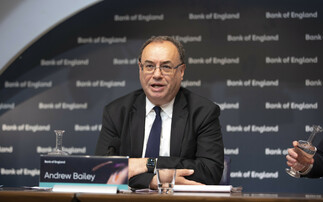Greece will receive emergency funding of €130bn after a second bailout of the stricken nation was agreed.
In return for the loans, Greece will aim to reduce its debt to 120.5% of GDP by 2020 and accept an "enhanced and permanent" presence of EU monitors to oversee economic management. Eurozone finance ministers agreed the bailout after late-night talks in Brussels continued into the early morning. The main losers in the deal are bondholders who will take losses of 53.5% on the value of their bonds. However, this could rise to as much as 70% when all the elements of the exchange are accounted for, the BBC reports. Greece needs the funds to avoid bankruptcy on 20 March, when maturing ...
To continue reading this article...
Join Investment Week for free
- Unlimited access to real-time news, analysis and opinion from the investment industry, including the Sustainable Hub covering fund news from the ESG space
- Get ahead of regulatory and technological changes affecting fund management
- Important and breaking news stories selected by the editors delivered straight to your inbox each day
- Weekly members-only newsletter with exclusive opinion pieces from leading industry experts
- Be the first to hear about our extensive events schedule and awards programmes









